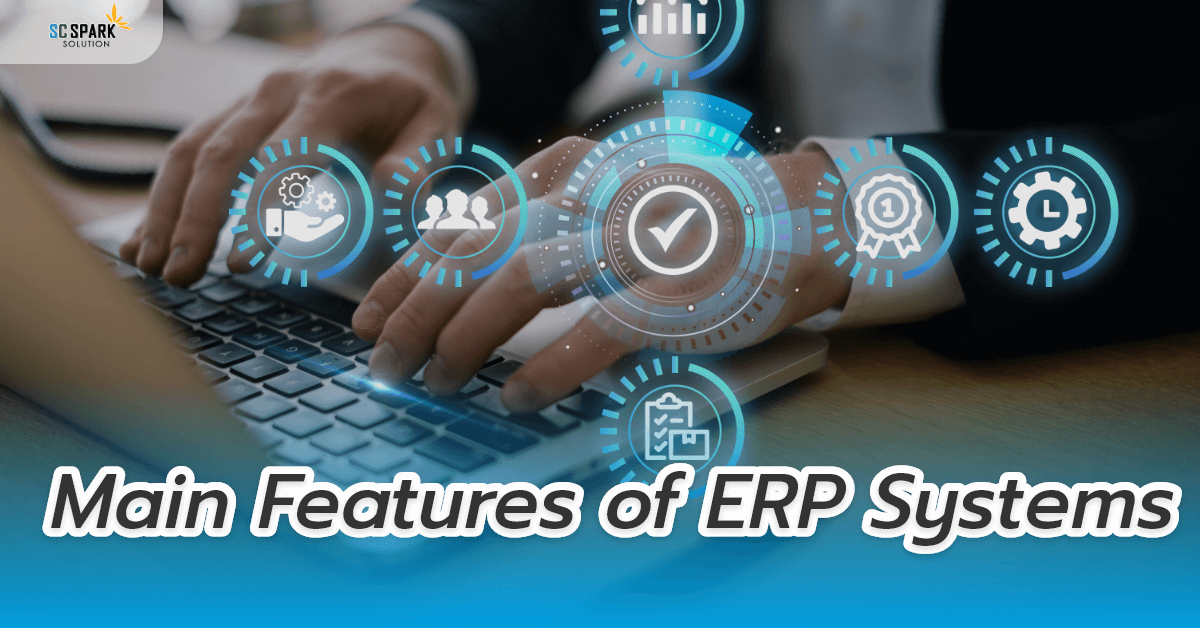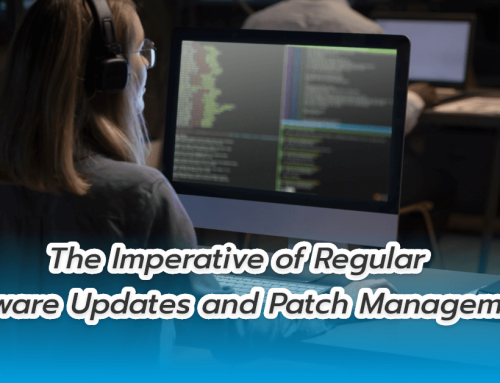Main Features of ERP Systems
Enterprise Resource Planning (ERP) systems are comprehensive software platforms used by businesses to manage and integrate crucial operations. By centralizing data and processes, ERP systems help organizations enhance efficiency, improve decision-making, and maintain competitive advantage. This article explores the main features of ERP systems that make them indispensable to modern businesses.
- Financial Management
General Ledger: The backbone of financial management in an ERP system, the general ledger tracks all financial transactions and provides real-time financial statements and reporting.
Accounts Payable and Receivable: These modules manage incoming and outgoing payments, streamlining the invoicing and payment processes to ensure accurate and timely transactions.
Budgeting and Forecasting: ERP systems provide tools for creating budgets and forecasts, enabling businesses to plan their finances effectively and anticipate future financial performance.
Asset Management: Tracks and manages a company’s physical and intangible assets, ensuring accurate depreciation calculations and efficient utilization.
- Human Resources Management (HRM)
Employee Information Management: Centralizes employee data, including personal details, employment history, and performance records, providing a single source of truth for HR activities.
Payroll Management: Automates the calculation and distribution of employee salaries, ensuring compliance with tax regulations and reducing manual errors.
Recruitment and Onboarding: Manages the recruitment process from job posting to hiring and onboarding, helping businesses attract and retain top talent.
Performance Management: Tracks employee performance, sets goals, and manages appraisals, facilitating continuous development and improvement.
- Supply Chain Management (SCM)
Procurement: Manages the procurement process, from requisition to purchase order and supplier management, ensuring efficient and cost-effective purchasing.
Inventory Management: Tracks inventory levels, manages stock movements, and optimizes inventory to prevent overstocking and stockouts.
Warehouse Management: Enhances warehouse operations by managing inventory storage, picking, packing, and shipping processes.
Logistics and Distribution: Coordinates transportation and distribution activities, ensuring timely delivery of products to customers.
- Manufacturing and Production Management
Production Planning: Helps businesses plan production schedules, allocate resources, and manage production workflows to meet demand efficiently.
Quality Management: Ensures that products meet quality standards by managing quality control processes, inspections, and compliance with industry regulations.
Bill of Materials (BOM): Manages the list of materials and components required for production, ensuring accurate costing and inventory control.
Maintenance Management: Schedules and tracks maintenance activities for production equipment, minimizing downtime and ensuring optimal performance.
- Customer Relationship Management (CRM)
Sales Management: Manages the entire sales process, from lead generation to order fulfillment, helping businesses track sales opportunities and improve conversion rates.
Customer Service and Support: Provides tools for managing customer inquiries, support tickets, and service requests, enhancing customer satisfaction and loyalty.
Marketing Automation: Automates marketing campaigns, tracks their effectiveness, and manages customer interactions, enabling targeted marketing efforts.
Customer Analytics: Analyzes customer data to provide insights into customer behavior, preferences, and trends, helping businesses tailor their offerings.
- Project Management
Project Planning and Scheduling: Helps businesses plan and schedule projects, allocate resources, and set milestones to ensure timely completion.
Task Management: Tracks project tasks, assigns responsibilities, and monitors progress, ensuring that all team members stay on track.
Budget and Cost Management: Manages project budgets and costs, providing real-time insights into project financials and ensuring profitability.
Collaboration Tools: Facilitates team collaboration through integrated communication and document sharing tools, enhancing project coordination.
- Business Intelligence (BI) and Reporting
Data Analytics: Provides advanced data analytics tools to analyze business performance, identify trends, and make data-driven decisions.
Customizable Reports: Allows businesses to create customizable reports on various aspects of operations, from financial performance to sales and inventory.
Dashboards: Offers real-time dashboards that provide a visual representation of key performance indicators (KPIs) and metrics, enabling quick insights.
Predictive Analytics: Uses historical data and machine learning algorithms to predict future trends and outcomes, helping businesses plan proactively.
- Integration and Flexibility
Modular Architecture: ERP systems are typically modular, allowing businesses to implement only the modules they need and scale up as requirements grow.
Third-party Integration: ERP systems can integrate with other software solutions, such as CRM, SCM, and BI tools, providing a seamless flow of information across the organization.
Mobile Access: Many ERP systems offer mobile access, enabling employees to access critical business information and perform tasks from anywhere.
Cloud Deployment: Cloud-based ERP solutions provide flexibility, scalability, and lower upfront costs, making them an attractive option for many businesses.
Conclusion
ERP systems offer a comprehensive suite of features that help businesses manage their operations more efficiently and effectively. From financial management and HRM to supply chain and customer relationship management, ERP systems integrate all essential business functions into a unified platform. By leveraging these features, businesses can improve efficiency, enhance decision-making, and achieve sustainable growth in a competitive marketplace.
For those of you who want to make an E-Commerce app, a shopping app or a Delivery app, we recommend SC-Spark Solution, an app making company. experienced With direct experience from Silicon Valley, being a company that develops more than 100 applications around the world, both custom and ready-made for you to choose from. If anyone is interested in making mobile applications or websites, you can contact here
Contact us at
Facebook : SC-Spark Solution บริการทำแอปพลิเคชั่น
“Nothing is impossible







